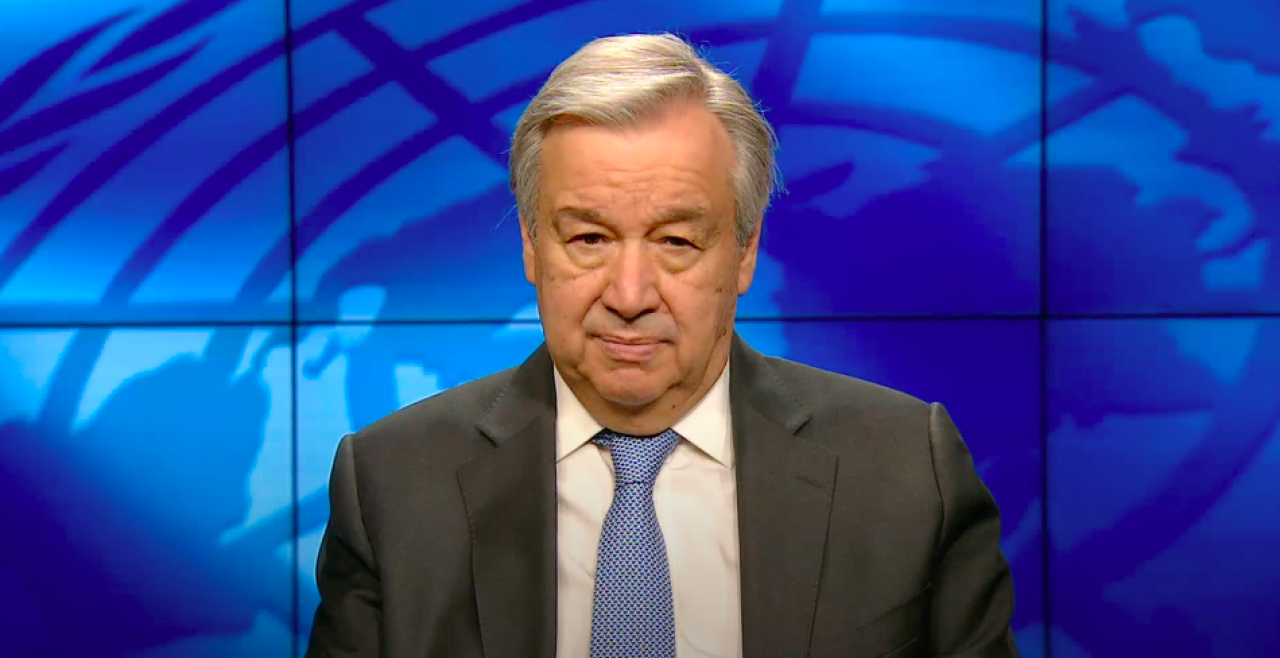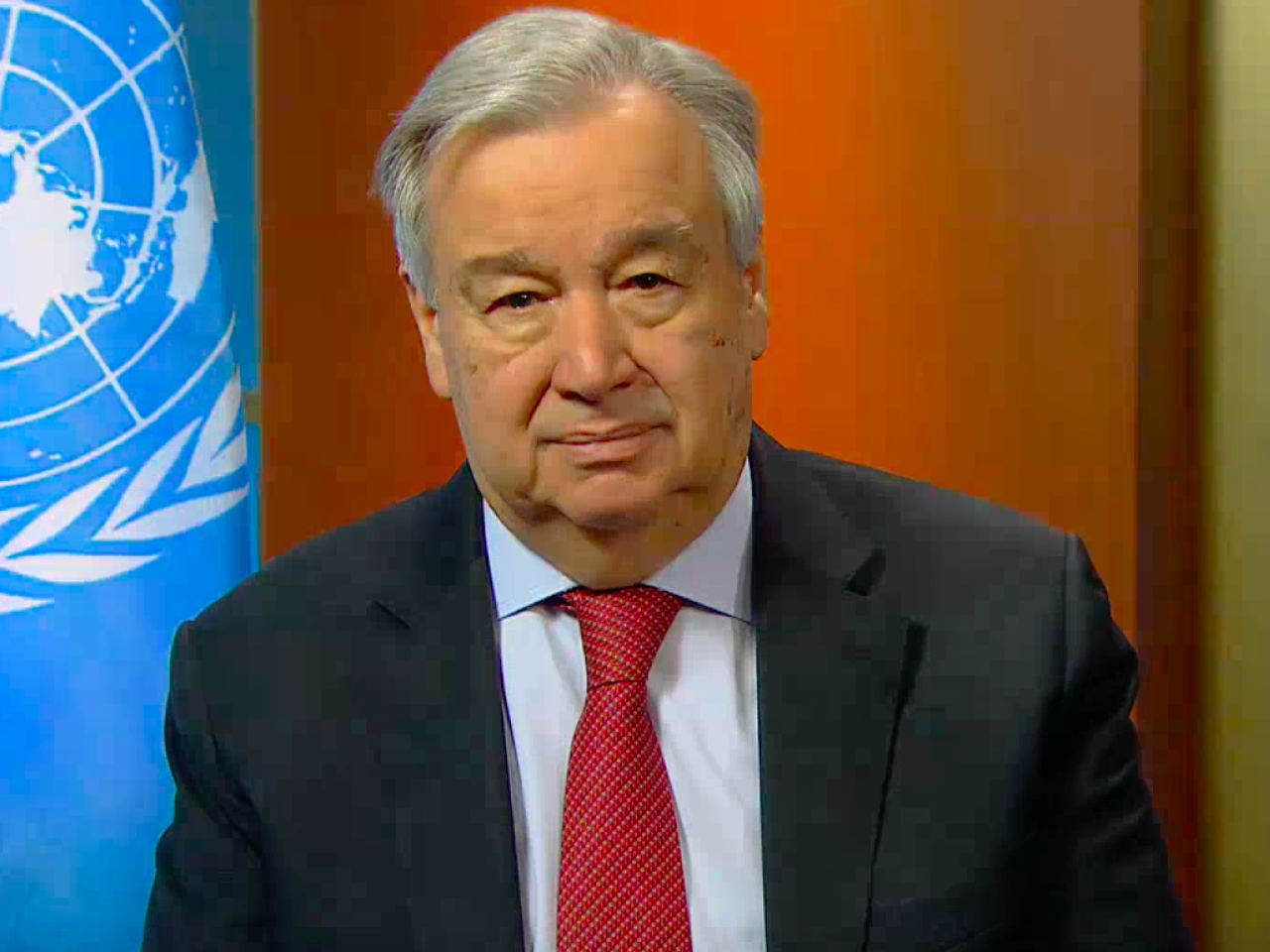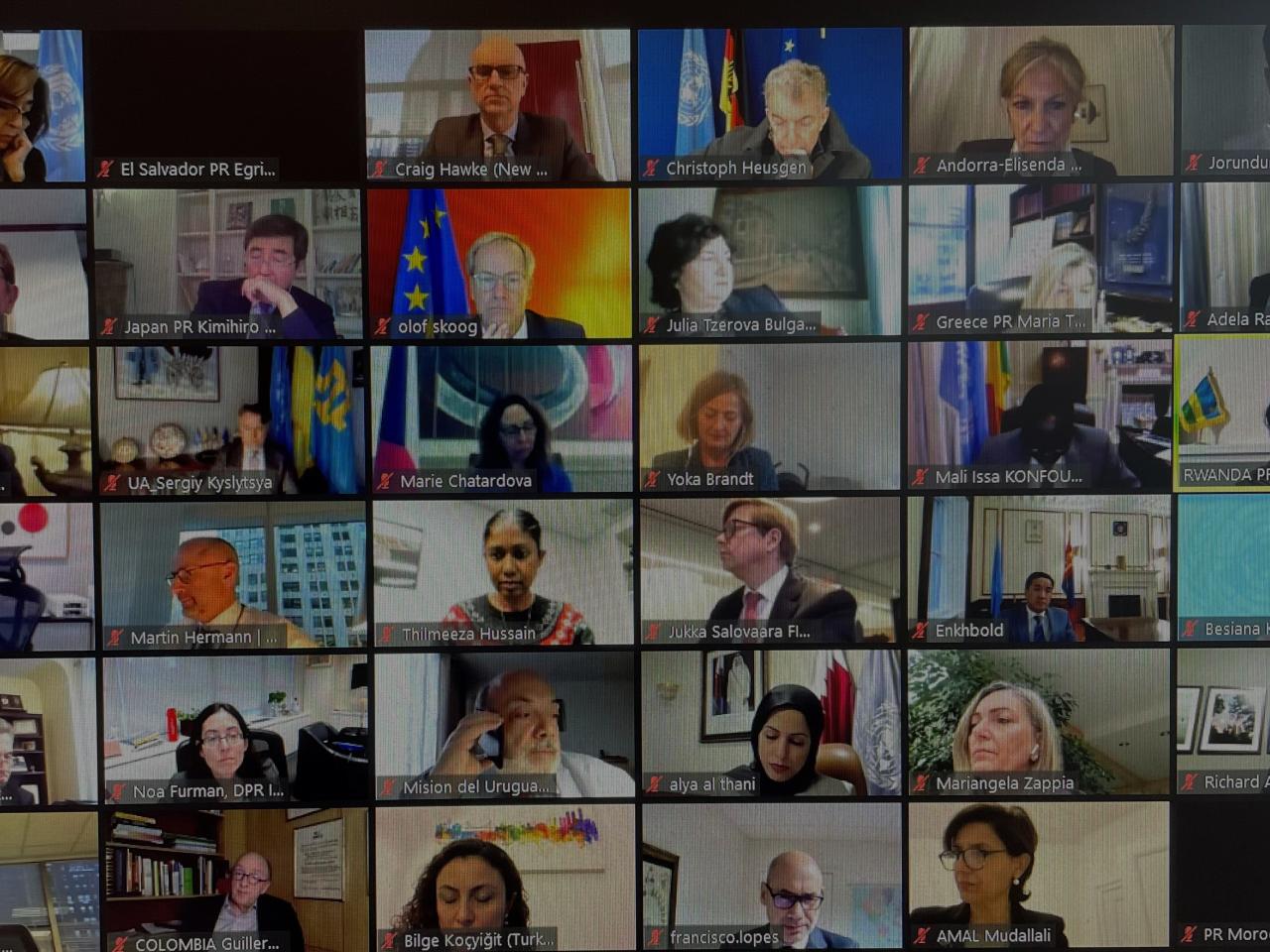‘Now is the moment’ - UN Secretary-General urges action on gender-based violence at high-level Group of Friends event

NEW YORK, United States - On 15 March, The Group of Friends for the Elimination of Violence against Women and Girls hosted a high-level event on the sidelines of the 65th Commission on the Status of Women (CSW65) to discuss what the international community has done to address the rising levels of violence against women and girls during the COVID-19 pandemic.
The event brought together UN Secretary-General António Guterres, EU Commissioner for International Partnerships Jutta Urpilainen, and high-level representatives from government and civil society to share challenges and best practices in a panel discussion chaired by EU Ambassador Olof Skoog.
Addressing the Group, Mr. Guterres said that since his appeal for peace in the home one year ago, 146 Member States had committed to stepping up efforts to prevent and respond to violence against women and girls during the COVID-19 pandemic and more than 700 measures had been adopted by governments to that end. “I thank the members of the Group of Friends for helping to mobilize this response,” he said. He also thanked the European Union for its leadership, “both through this Group, and through our partnership on the Spotlight Initiative, which has helped to accelerate progress to end violence against women and girls in 31 countries and provided a lifeline to many women’s organizations.” He encouraged more partners to join the global effort, but said even more needed to be done to address “the most extreme and repugnant example of inequality and discrimination against women and girls.”
"I thank the European Union for its leadership, both through this Group and through our partnership on the Spotlight Initiative, which has helped to accelerate progress to end violence against women and girls." - UN Secretary-General António Guterres
Ms. Urpilainen echoed his concerns, sharing that 243 million women and girls had experienced physical or sexual violence in the past year. “These women and girls live in fear and suffer in silence, often cut off from friends and communities,” she said. “Stay-at-home measures have trapped them in the place they should feel most safe. This is not happening in just one country or one region but everywhere.” She reiterated the EU’s commitment to working with partners and stakeholders to put women front and centre to build back better.
President of Estonia Kersti Kaljulaid said that her country had actively been looking in the mirror and had found the rising number of legal cases related to physical and sexual violence encouraging, as it meant more survivors were empowered to come forward and seek justice. A targeted social media campaign was also launched to encourage citizens to be active bystanders and to report suspected abuse to police, something that has traditionally been taboo. “We are also now revamping our legal system to ensure that women and children are better protected, because the system has also been demonstrating its flaws during this pandemic,” she said.
Niger’s Minister of Planning and Economy Aïchatou Boulama Kané, said the COVID-19 crisis has been particularly disastrous for women and girls, and has led to both increased violence and higher school dropout rates. She said education helps fight poverty and gender inequalityand that Niger is committed to ensuring girls’ access to education. Ms. Kané highlighted that the informal sector, mainly composed of women and young people, has been particularly hard hit by the pandemic and that COVID-19 policies must focus on how to provide social protection to all. She said that in Niger, poverty has decreased, as have levels of maternal mortality. Niger has also taken legal and administrative measures to end violence against women and girls and the Spotlight Initiative is reinforcing these institutional measures.
“Stay-at-home measures have trapped [women and girls] in the place they should feel most safe. This is not happening in just one country or one region but everywhere.” - European Commissioner for International Partnerships Jutta Urpilainen
Josina Machel, Founder of the Kuhluka Movement, a non-profit organization that addresses women’s rights issues across Africa, said that many of the public health strategies adopted by governments to deal with the pandemic did not adequately account for pre-existing inequalities. “What this created was huge spikes of violence all over the world that scandalized many of us and put many of us - women survivors and victims of violence - in the fringes of society once again.” She emphasized the importance of training healthcare workers on how to recognize signs of gender-based violence and create pathways of assistance for those suffering. She also highlighted the need to incorporate the inputs and wishes of survivors of violence into pandemic measures. “We are indeed an army of women who are testament to this gruesome crime, and we need adequate assistance,” she said.
Geeta Misra, Executive Director of CREA, a feminist organization to advance the rights of women in India, spoke about the challenges of meeting the differing needs of women exposed to violence during the pandemic. “Different groups face different levels of violence and the heightened vulnerability of LGBTIQ and gender non-conforming persons, women with disabilities and sex workers during the pandemic and lockdown has been highlighted,” she said. She said there was a need for better data aggregation to tailor individual responses for different groups and reiterated the importance of including civil society organizations in response measures, as their expertise and inputs had led to some of the most effective responses implemented during the pandemic.
In her closing remarks, Ixchel Lucas, a youth leader from Las Niñas Lideran (Girls Lead) in Guatemala spoke on behalf of the Generation Equality Action Coalition on Gender-based Violence. She said that ahead of the upcoming Generation Equality Forums, girls and adolescents must remain at the centre of the conversation. She said the joint efforts of the Group of Friends and of the Action Coalition represent the kind of alliance that the world needs to end all forms of violence against women and girls.


